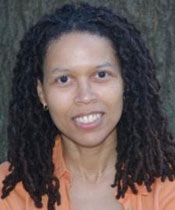Evie Shockley, a poet, novelist and professor, will read at 7 p.m. today in Klingenstein Lounge as part of the Distinguished Visiting Writers series.
Shockley formally worked in environmental law, but decided to pursue her love of language. She is currently an English professor at Rutgers University and the author of the poetry collections “the new black” and “a half-red sea.” She is working on an upcoming study, “Renegade Poetics: Black Aesthetics and Formal Innovation in African-American Poetry.”

Contributing Writer Jillian Kaplan spoke to Shockley about her process as a writer and her relationship with poetry as a form of communication.
Jillian Kaplan: Would you consider your own writing political?
Evie Shockley: I definitely consider myself a political poet in the way we all are. The way poetry can show you what’s possible within language, the humor of it, the ambiguity, the elasticity — those qualities expose more for me about language than any other genre. Every poem presents its own set of challenges, but one of the poems that offered interesting bits of challenges, one I’m really proud of, is in my first book.
JK: You wrote a 1,000-word poem playing off the phrase “A picture is worth a thousand words” in response to pictures of torture from Abu Ghraib. Where did the inspiration to write about that come from?
ES: When those came out, I started thinking about the idea of torture. I tried to put things in conversation that sometimes are thought of separately. It was a really sort of ambitious poem, I would say, and I was excited because it went over an entire page, and in the book had to be printed sideways. The publisher was able to accommodate that. It was really exciting and challenging.
JK: As a poet, do you think about any particular audience, or do you just write?
ES: I think about audience a lot when I write, actually. But part of what draws me to a variety of poetic styles is that I’m often thinking about how to bring different audiences to my poetry.
JK: When do you feel that a manuscript is complete enough to submit?
ES: It was a really long process for the first book. It was kind of a mysteriously short process for the second book. It’s intuitive at a certain level and I still second-guess myself a lot. I’m always thinking about how to make poems speak to each other as you move from one to the other.
JK: What is your advice for current writing students?
ES: My advice to writers is always to read. I’ve heard beginning writers say things like, “I don’t want to read a lot of other poetry because I don’t want to get my voice confused with other writers, or have my style of expression influenced.” That is exactly the opposite of what is useful for learning how to write. You have a voice. You only can really write your poems in reading other writers. This won’t enable you to be them but will teach you the range of possibility for poetry. You will come off with a greatly expanded idea of what poems will do.







